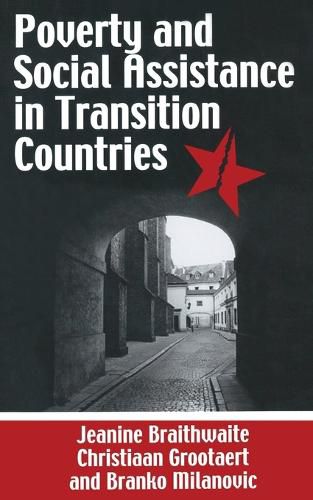Readings Newsletter
Become a Readings Member to make your shopping experience even easier.
Sign in or sign up for free!
You’re not far away from qualifying for FREE standard shipping within Australia
You’ve qualified for FREE standard shipping within Australia
The cart is loading…






This title is printed to order. This book may have been self-published. If so, we cannot guarantee the quality of the content. In the main most books will have gone through the editing process however some may not. We therefore suggest that you be aware of this before ordering this book. If in doubt check either the author or publisher’s details as we are unable to accept any returns unless they are faulty. Please contact us if you have any questions.
Declining incomes and growing income inequality have led to a rise in poverty in the transition economies of Eastern Europe and the former Soviet Union. This study examines poverty and social assistance in six countries - Bulgaria, Hungary, Poland, Estonia, Russia, and the Kyrgyz Republic - comparing the poverty profiles and the correlates of poverty between the two regions. The study finds that the profile of poverty is more sharply defined in Eastern Europe than in the former Soviet Union, where poverty is more widespread. This holds the potential for better targeting of social assistance in Eastern Europe, and the study proposes a novel two-step approach to identify the poor.
$9.00 standard shipping within Australia
FREE standard shipping within Australia for orders over $100.00
Express & International shipping calculated at checkout
This title is printed to order. This book may have been self-published. If so, we cannot guarantee the quality of the content. In the main most books will have gone through the editing process however some may not. We therefore suggest that you be aware of this before ordering this book. If in doubt check either the author or publisher’s details as we are unable to accept any returns unless they are faulty. Please contact us if you have any questions.
Declining incomes and growing income inequality have led to a rise in poverty in the transition economies of Eastern Europe and the former Soviet Union. This study examines poverty and social assistance in six countries - Bulgaria, Hungary, Poland, Estonia, Russia, and the Kyrgyz Republic - comparing the poverty profiles and the correlates of poverty between the two regions. The study finds that the profile of poverty is more sharply defined in Eastern Europe than in the former Soviet Union, where poverty is more widespread. This holds the potential for better targeting of social assistance in Eastern Europe, and the study proposes a novel two-step approach to identify the poor.